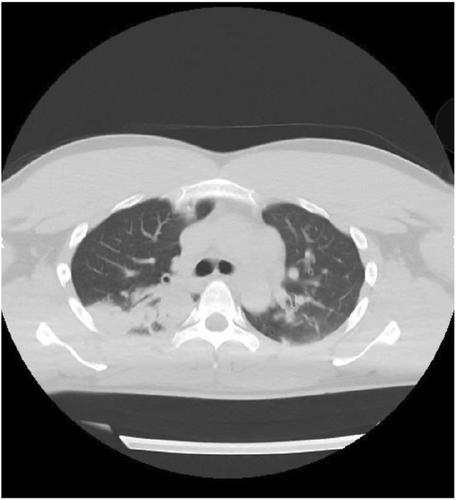一例与新冠肺炎相关的轻度脑炎。
IF 1.8
Q2 MEDICINE, GENERAL & INTERNAL
引用次数: 0
摘要
我们报告一例31岁男性的轻度脑炎/脑病伴可逆性脾病变(MERS)。他被诊断为轻度新冠肺炎3 几天前,在精神状态发生变化的情况下被送往急诊科。脑磁共振成像(MRI)在扩散加权成像上显示高强度区域局限于胼胝体压部,这与MERS一致。MERS的特征是胼胝体压部发生可逆性变化。最近有报告称,新冠肺炎继发MERS。考虑意识受损的新冠肺炎患者的MERS很重要。本文章由计算机程序翻译,如有差异,请以英文原文为准。

A case of mild encephalitis associated with COVID-19
We report a case of mild encephalitis/encephalopathy with a reversible splenial lesion (MERS) in a 31‐year‐old man. He had been diagnosed with mild COVID‐19 3 days earlier and presented to the emergency department with altered mental status. Brain magnetic resonance imaging (MRI) showed a high‐intensity area confined to the splenium of the corpus callosum on diffusion‐weighted imaging, which is consistent with MERS. MERS is characterized by a reversible change in the splenium of the corpus callosum. MERS secondary to COVID‐19 has been reported recently. It is important to consider MERS in COVID‐19 patients with impaired consciousness.
求助全文
通过发布文献求助,成功后即可免费获取论文全文。
去求助
来源期刊

Journal of General and Family Medicine
MEDICINE, GENERAL & INTERNAL-
CiteScore
2.10
自引率
6.20%
发文量
79
审稿时长
48 weeks
 求助内容:
求助内容: 应助结果提醒方式:
应助结果提醒方式:


